L'Atalante (French pronunciation: ?; also released as Le Chaland qui passe, ("The Passing Barge"), is a 1934 French film written and directed by Jean Vigo. Jean Dasté stars as Jean, the captain of a river barge who lives with his new wife Juliette (Dita Parlo) on the barge, along with first mate Père Jules (Michel Simon) and the cabin boy (Louis Lefebvre).
| L'Atalante | |
|---|---|
1990 re-release poster by Michel Gondry | |
| Directed by | Jean Vigo |
| Produced by | Jacques-Louis Nounez |
| Written by | Jean Vigo Albert Riéra |
| Based on | an original scenario by Jean Guinée |
| Starring | Michel Simon Dita Parlo Jean Dasté |
| Music by | Maurice Jaubert |
| Cinematography | Boris Kaufman |
| Edited by | Louis Chavance |
Production company | Argui-Films |
| Distributed by | Gaumont Film Company |
Release date | Preview: 25 April 1934 Initial release: 12 September 1934 |
Running time | 65 minutes (original French release) 89 minutes (restored version) |
| Country | France |
| Language | French |
| Budget | ?1 million |
After the difficult release of his then controversial short film Zero for Conduct (1933), Vigo initially wanted to make a film about Eugène Dieudonné, whom Vigo's father (anarchist Miguel Almereyda) had been associated with in 1913. After Vigo and his producer Jacques-Louis Nounez struggled to find the right project for a feature film, Nounez finally gave Vigo an unproduced screenplay by Jean Guinée about barge dwellers. Vigo re-wrote the story with Albert Riéra while Nounez secured a distribution deal with the Gaumont Film Company with a budget of ?1 million. Vigo used many of the technicians and actors that worked with him on Zero for Conduct, such as cinematographer Boris Kaufman and actor Jean Dasté.
It has been hailed by many critics as one of the greatest films of all time.
Screenplay
Jean, the captain of the canal barge L'Atalante, marries Juliette in her village. They decide to live aboard L'Atalante along with Jean's crew, Père Jules and the cabin boy.
The couple travel to Paris to deliver cargo, enjoying a makeshift honeymoon en route. Jules and the cabin boy are not used to the presence of a woman aboard. When Jean discovers Juliette and Jules talking in Jules's quarters, Jean flies into a jealous rage by smashing plates and by sending Jules's cats scattering.
Arriving in Paris, Jean promises Juliette a night out, but Jules and the cabin boy disembark to go see a fortune teller. This disappoints Juliette because Jean cannot leave the barge unattended.
Later, however, Jean takes Juliette to a dance hall. There, they meet a street peddler who flirts with Juliette, dances with her, and asks her to run off with him. This leads to a scuffle with Jean, after which he drags Juliette back to the barge. Juliette still wants to see the nightlife in Paris however, so she sneaks off the barge to go see the sights. When Jean discovers that she sneaked off the barge, he furiously casts off and leaves Juliette behind in Paris.
Unaware that Jean had already left, Juliette goes window shopping. When she returns to the barge and finds that it's gone, she tries to buy a train ticket to the barge's next destination, but someone steals her purse before she is able to. She is forced to find a job so she can afford to live and eventually travel to Le Havre to meet the barge: her activities during this period are unclear.
Meanwhile, Jean comes to regret his decision, and slips into depression. He is summoned by his company's manager, but Jules manages to keep him from losing his job. Jean recalls a folk tale that Juliette once told him. She said that one can see the face of one's true love in the water. He attempts to recreate this by dunking his head in a bucket, and failing that, jumping into the river. Jules decides to leave and try to find Juliette. He finds her and they return to the barge where the couple reunites and happily embrace each other.
- Michel Simon as Père Jules
- Dita Parlo as Juliette
- Jean Dasté as Jean
- Gilles Margaritis as Le camelot (the peddler)
- Louis Lefebvre as Le gosse (the cabin boy)
- Maurice Gilles as Le chef de bureau (the manager of the waterways company)
- Raphaël Diligent as Raspoutine, a scrap dealer who sells Jules trinkets
- René Bleck as Le garçon d'honneur (Jean's best man, uncredited)
- Fanny Clar as La mère de Juliette (Juliette's mother, uncredited)
- Charles Goldblatt as Le voleur (the thief, uncredited)
- Glen Paul as L'invité qui boite (a wedding guest with a limp, uncredited)
- Jacques Prévert as an extra
- Pierre Prévert as an extra
- Loutchimoukov as an extra
Background and writing
While finishing work on Zero for Conduct, producer Jacques-Louis Nounez was interested in working with Vigo on a feature. Vigo suggested they work on a prison film about French anarchist Eugène Dieudonné, whom Vigo's father Miguel Almereyda had defended in a newspaper article in 1913. Vigo began working on the film with Dieudonné, who had agreed to play himself, and Julot Dupont, an expert on French prisons. After Zero for Conduct was banned in France for its controversial depiction of the French education system, Nounez was worried that such a film could not be distributed. Other ideas for films considered by Nounez and Vigo include an adaptation of Georges de La Fouchardière's L'Affaire Peau-de-Balle, and a script Vigo had written about the relationship between a bourgeois father and his more progressive son. In July 1933, Nounez finally gave Vigo a scenario about "barge dwellers" called L'Atalante, written by Jean Guinée. In the early 1930s, films and music about "barge dwellers" were popular in France and had inspired such pop songs as "Chanson de halage" and "Le chaland qui passé". Vigo initially disliked the scenario, but finally agreed to make the film and began making suggestions for the story.
Nounez produced the film for ?1 million and made a deal with the Gaumont Film Company to provide studio sets and distribute the film. Vigo hired people he frequently collaborated with, such as cinematographer Boris Kaufman, composer Maurice Jaubert, and art director Francis Jourdain, who was an old friend of his father. Boris Kaufman, the brother of Soviet film maker Dziga Vertov, described his years working with Vigo as "cinematic paradise." Vigo also hired established film editor Louis Chavance after he found it difficult to edit Zero for Conduct himself. Chavance had attended the premiere of Zero for Conduct and had been one of its early supporters and quickly became friends with Vigo. Vigo and Albert Riéra quickly wrote a shooting script and scouted locations at docks during the summer of 1933. They also found and leased Louise XVI, the barge used for the film.
Casting
Vigo worked with established movie stars for the first time, who were hired by Gaumont but approved of by Vigo. Michel Simon had been a lead actor after appearing in the title role of Jean Renoir's Boudu Saved from Drowning (1932). Simon stated that he accepted the role for the little-known and already controversial Vigo because he sympathized with Vigo and wanted to help his troubled career. Dita Parlo was a minor star who had just returned to France after six years in Germany. Jean Dasté had only appeared in Zero for Conduct and Boudu Saved from Drowning before his lead role, but went on to have a long career in France. Louis Lefèbvre had previously appeared in Zero for Conduct. Vigo was familiar with Lefèbvre's lack of acting training and awkwardness on camera and worked those characteristics into his character in order to make Lefèbvre's performance work.
Filming
Although scheduled to begin shooting during the summer, production did not begin until mid-November 1933. L'Atalante took four months to shoot, partially in a replica of the barge in a Gaumont studio, and partially on location. During filming, Vigo would often act out the scenes himself for the actors and insisted that they re-shoot scenes until they were perfect.
Amongst the changes that Vigo made to the original script was replacing Père Jules' pet dog with over ten alley cats supplied by the Society for the Prevention of Cruelty to Animals. Vigo's father had been fond of such cats and Vigo's childhood homes were often overrun with stray cats. During the scenes where Père Jules plays his phonograph, the cats would become immediately fascinated by the phonograph and surround it whenever it played music. Vigo quickly assembled his crew and shot footage of the cats listening to the music and sleeping inside the loud speaker. Simon later adopted the kitten that rested inside the phonograph horn. Vigo also visited local flea markets in Saint-Ouen and the scrap metal market on Boulevard Richard-Lenoir to find props for Père Jules' collection of artifacts from around the world.
Production began with the exteriors on location and was shot mostly in sequence. The first scene shot was the wedding sequence at Maurecourt in the Oise. The exteriors of the dance hall sequence where Juliette first meets the showman were shot at the Charentonneau dance hall in Maisons-Alfort, while the interiors were shot on an elaborate set at Gaumont studios. The character of the showman was not very developed in the shooting script and Vigo relied on improvisation on set to create a more interesting character. Because Gaumont had insisted that music be included in the film, the showman sings "The Pedlar's Complaint", a French folk song written by Vigo, Goldblatt and Jaubert that makes fun of the genre of music that they were unwillingly required to include in the film. Vigo had previously experienced bad sound quality when shooting Zero for Conduct and was concerned about a similar problem on L'Atalante despite having better equipment. Since Michel Simon had both the most dialogue in the film and a distinctly inarticulate manner of speech, Vigo had Simon adopt the character trait of repeating questions that were asked of his character.
The first two weeks of location shooting began in the Oise between the Marne and the Rhine and down the Ourcq canal to the basin at La Villette. The harsh and early winter weather slowed down the shooting schedule and affected Vigo's health. Despite the cold weather, Vigo wanted to shoot at night more and more so as to use the artificial lights of the barge and houses along the canal. Vigo also needed to maintain continuity, and the cold weather was creating floating ice in the canal. In the middle of location shooting, Vigo moved the cast and crew to the replica set of the barge at Gaumont studios at La Villette, but would quickly change the day's shooting to on location whenever the weather permitted. Vigo left all transition shots to the very end of shooting, which became a major problem due to the ground then being covered with snow. Vigo shot many low angle shots that only showed the sky in the background to ameliorate this problem.
By mid-January, the film was behind schedule and over budget, with several major sequences having not yet been shot. Gaumont executives blamed Vigo and pressured him to finish the film quickly and inexpensively. Vigo was forced to film documentary-style footage, such as the scene where Juliette walks past a line of real unemployed workers. Despite not having sufficient funding from Gaumont to pay extras or for locations, he was able to film the scene where Juliette is robbed at the Gare d'Austerlitz in the middle of the night with a few friends appearing as background extras. Chavance was also able to recruit members of t
Watch movie L%27atalante online on Amazon
Watch movie L%27atalante online
Watch The Movie On PrimeDance Dance Full HD Movie Download
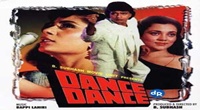
Intaqaam Full HD Movie Download
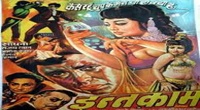
Sohni Mahiwal (1984) Full HD Movie Download
.jpg)
Album- The Collection Of Sweet Memories Full HD Movie Download
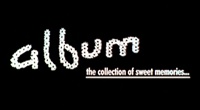
Andaz (1994) Full HD Movie Download
.jpg)
Paa Full HD Movie Download

Dancer Full HD Movie Download

Amar Deep Full HD Movie Download
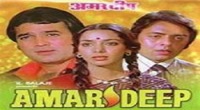
Munimji (1955) Full HD Movie Download
.jpg)
Parthale Paravasam Full HD Movie Download

Slum Bala Full HD Movie Download
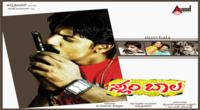
Lal Tuk Tuk Sadhaba Bohu Full HD Movie Download

Phir Ek Tehelka Full HD Movie Download
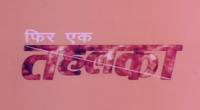
Megasandesam Full HD Movie Download
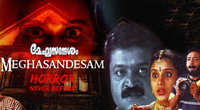
Shalabam Full HD Movie Download

Ayiram Poi Full HD Movie Download
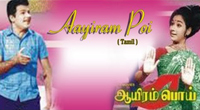
Jodhaa Akbar Full HD Movie Download

Indru Poi Naalai Vaa Full HD Movie Download

Lafangey Parindey Full HD Movie Download
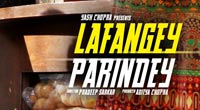
Daag: A Poem of Love Full HD Movie Download
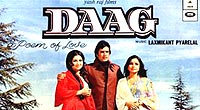
Vijay Full HD Movie Download

Download latest Movie from bollywood
- 1> baaghi 3
- 2> THE SKY IS PINK MOVIE FULL STORY AND REVIEW
- 3> Luka Chuppi
- 4> TO ALL THE BOYS I’VE LOVED BEFORE
- 5> Kabir Singh
- 6> Street Dancer 3D
- 7> Simmba
- 8> Gone Girl
- 9> The Girl Who Lived
- 10> Ludo
- 11> DILWALE DULHANIA LE JAYENGE
- 12> GUILTY
- 13> The Godfather
- 14> Adventures of Rusty
- 15> Sooryavanshi
- 16> Satyameva Jayate 2
- 17> Thappad
- 18> Bhool Bhulaiyaa 2
- 19> KGFChapter 2
- 20> Mardaani 2
- 21> Pinjar
- 22> Shivaji maharaj
- 23> Ek Villian 2
- 24> Hungama 2
- 25> Divergent
- 26> Mumbai Saga
- 27> The Internship
- 28> HIT (telugu)
- 29> Panga
- 30> The perfect date
- 31> 16 December
- 32> Gopala Gopala (Telugu)
- 33> Brahmastra
- 34> Gangubai Kathiawadi
- 35> Manmadhudu
- 36> Nenu local
- 37> Mahanati
- 38> Shatamanam bavathi
- 39> Lagaan
- 40> After
- 41> MOM
- 42> Shamshera
- 43> Raguvaran BTech
- 44> Khakee
- 45> The villain
- 46> OM
- 47> Mr. perfect
- 48> Bueatifull mind
- 49> Hichki
- 50> Gabbar Singh
- 51> Jogi
- 52> Before Sunrise
- 53> Before Sunset
- 54> Before Midnight
- 55> The Big Bull
- 56> Top Gun: Maverick
- 57> The Purge
- 58> The Sky is Pink
- 59> Laxmmi Bomb
- 60> Sadak 2
- 61> Sufna
- 62> Prithviraj
- 63> PK
- 64> Coolie No 1(2020)
- 65> Black Widow
- 66> Dear Zindagi
- 67> Dil Bechara
- 68> PHIR HERA PHERI
- 69> WAR
- 70> Dostana
- 71> RRR: Roudram Ranam Rudhiram
- 72> Maidan
- 73> Dabbang 3
- 74> Chhalaang
- 75> life as we know it
- 76> SherShaah
- 77> Sandeep Aur Pinky Faraar
- 78> Event Horizon
- 79> 83
- 80> Radhe: Your Most Wanted Bhai
- 81> Gunjan Saxena: The Kargil Girl
- 82> Mr India
- 83> Vivah
- 84> Anokha Bandhan
- 85> Ghost
- 86> Bhoot: Part One - The Haunted Ship
- 87> Haseen Dilruba
- 88> Laal Singh Chaddha
- 89> Qismat
- 90> Rajput
- 91> Drive
- 92> Dil Chahta Hai
- 93> Dil Ki Baazi
- 94> Dil Ka Rishta
- 95> Teesri Manzil
- 96> Dil
- 97> Love Aaj Kal
- 98> Khaali Peeli
- 99> Bunty Aur Babli 2
- 100> Atrangi Re
- 101> Gulabo Sitabo
- 102> Jodi
- 103> Suraj Pe Mangal Bhari
- 104> Deewana
- 105> Attack
- 106> Sardar Udham Singh
- 107> Toofan
- 108> THE LOVEBIRDS
- 109> Jersey
- 110> Ginny Weds Sunny
- 111> Thalaivi
- 112> Shiddat
- 113> Angels vs Zombies
- 114> Koi Mil Gya
- 115> Thank God
- 116> Bhuj: The Pride of India
- 117> Hum Aapke Hain Kaun
- 118> The Platform
- 119> Bird Box
- 120> Roohi Afzana
- 121> Torbaaz
- 122> Nikamma
- 123> World War Z
- 124> Extraction
- 125> Train to Busan
- 126> Life of Pi
- 127> SHAADI MEIN JROOR AANA
- 128> Himmat Aur Mehnat
- 129> To All The Boys: P.S. I Still Love You
- 130> Mimi
- 131> Good Newwz
- 132> Shubh Mangal Zyada Saavdhan
- 133> Raabta
- 134> Harry Potter and the Philosopher's Stone
- 135> Harry Potter and the Chamber of Secrets
- 136> Chhapaak
- 137> War of the Worlds
- 138> Harry Potter and the Prisoner of Azkaban
- 139> Harry Potter and the Goblet of Fire
- 140> MURDER MYSTERY
- 141> Shakuntala Devi
- 142> Bachchan Pandey
- 143> Jayeshbhai Jordar
- 144> Sheer Qorma
- 145> Saina
- 146> 'O' Pushpa I hate tears
- 147> Kedarnath
- 148> MS Dhoni The Untold Story
- 149> Chhichhore
- 150> Badhaai Ho
- 151> Unstoppable
- 152> Oz the Great And Powerful
- 153> The Girl on the Train
- 154> Haathi Mere Saathi 2020
- 155> The Conjuring: The Devil Made Me Do It
- 156> Gandhi Se Pehle Gandhi
- 157> The Song of Scorpions
- 158> Srimanthudu
- 159> Hello Guru Prema Kosame
- 160> Beauty and The Beast
- 161> Black Panther
- 162> Charlie and the Chocolate Factory
- 163> Bole Chudiyan
- 164> Fidaa
- 165> Duvvada Jagannadham
- 166> Bruce Lee: The Fighter
- 167> Hyper
- 168> Yaara
- 169> Red (2020)
- 170> Shivam
- 171> That Is Mahalakshmi
- 172> Nishabdham
- 173> Aashram 2020 web series
- 174> Laxmii
- 175> Mismatched
- 176> STUDENT OF THE YEAR 2
- 177> NAIL POLISH
- 178> Ramprasad Ki Tehrvi
- 179> KAAGAZ
- 180> 12 o Clock
- 181> The Power
- 182> bolo hau
- 183> Tribhanga
- 184> JAMUN
- 185> Madam Chief Minister
- 186> Maasaab
- 187> Aadhaar
- 188> Tanhaji
- 189> Bhaagi 3
- 190> Bhootnath
- 191> MALANG
- 192> Jai Mummy Di
- 193> Haathi Mere Saathi 2021
- 194> Shakeela
- 195> Unpaused
- 196> Annayya
- 197> Vamsoddharakudu
- 198> Mrugaraju
- 199> Narasimha Naidu
- 200> Sankranti
- 201> Manasu Maata Vinadhu
- 202> Anjaane
- 203> Apaharan
- 204> Bachke Rehna Re Baba
- 205> Bewafaa
- 206> Roohi
- 207> Radhe
- 208> Zindagi Khoobsoorat Hai
- 209> Yeh Mohabbat Hai
- 210> Yeh Kya Ho Raha Hai?
- 211> The Tomorrow War
- 212> DehradunDiary
- 213> Meri Shaadi Karaoo
- 214> Matruu Ki Bijlee Ka Mandola
- 215> No One Killed Jesica
- 216> Aag Ka Goola
- 217> Eight Million Dollars
- 218> Three Hundred
- 219> Cats and Dog
- 220> Decoy
- 221> Gold Rush
- 222> You Have Got Mail
- 223> Final Destination three
- 224> Tofan
- 225> Jungle
 Story of movie L%27atalante :
Story of movie L%27atalante : 